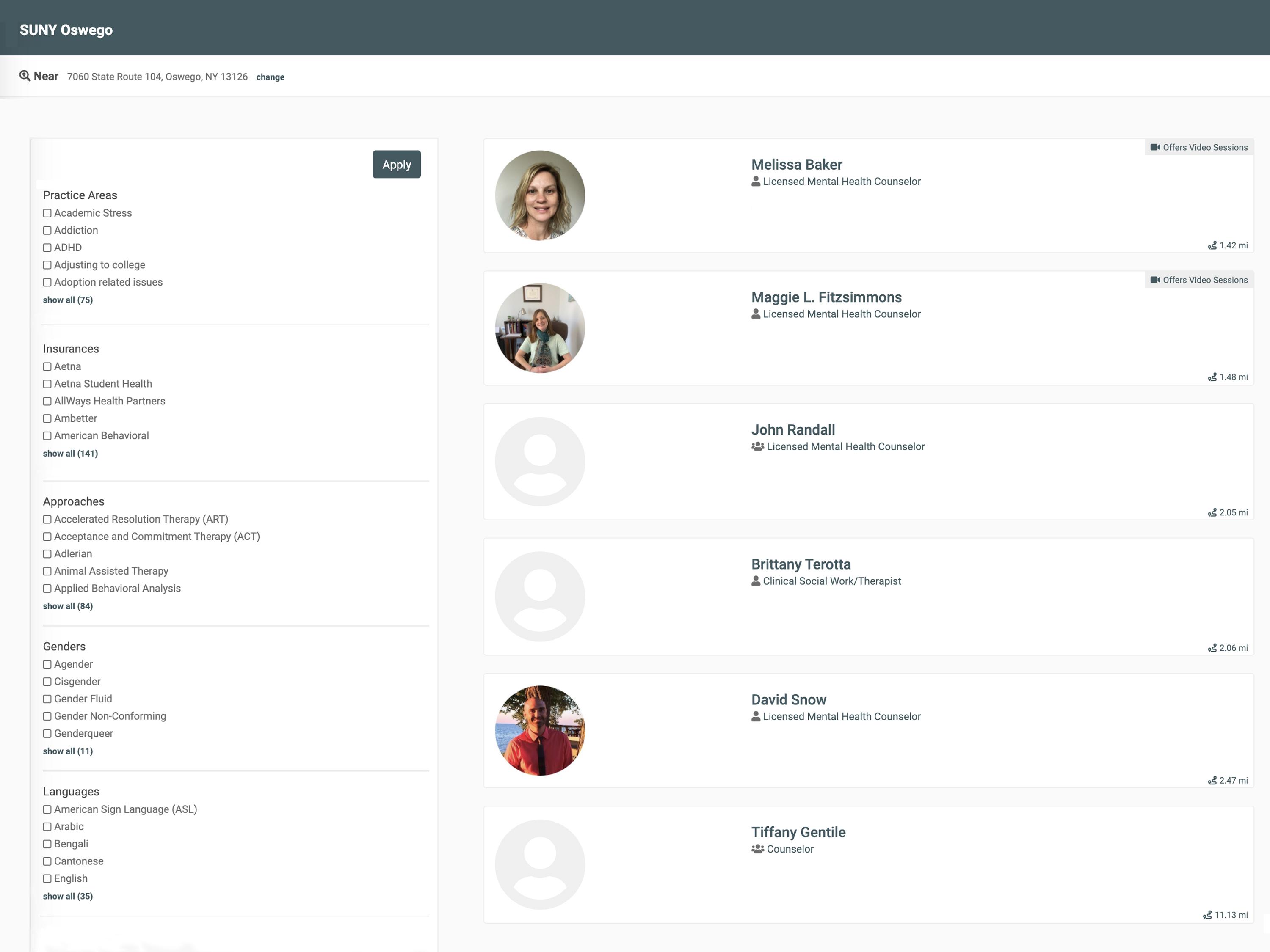SUNY Oswego was an early adopter of the Thriving Campus application, a program that connects students with counseling services and which SUNY Chancellor Jim Malatras recently announced would be adopted throughout the State University system as part of a comprehensive plan to expand access to mental health services to every student at SUNY’s 64 campuses.
Thriving Campus is a HIPAA-compliant web application that breaks down the barriers to getting help by bridging the gap between campus counseling services and local mental health and wellness service providers.
“The Thriving Campus App will expand the mental health services we offer to students in need during this most difficult time as they navigate living and learning amidst a global pandemic,” said SUNY Oswego President Deborah F. Stanley.
SUNY Oswego was one of the first colleges in the state to sign on for Thriving Campus a year and a half ago. According to Katherine Wolfe-Lyga, director of SUNY Oswego’s Counseling Services Center, “We saw the opportunity to better connect students to off-campus resources. We wanted the referrals to be seamless.”
When campus counseling centers determine that a student needs more specialized, long-term care, the easy-to-access, mobile-friendly Thriving Campus App facilitates the handoff to a licensed local provider. Providers manage their own profiles, posting up-to-date information on their specializations and time availability. Their profiles are hidden if they are not accepting new patients, breaking down a frequent barrier to services by preventing students from reaching out, being turned down, getting frustrated, and ultimately abandoning their search.
The Thriving Campus directories are customized by college. They also include a help guide that provides tips on insurance and choosing a provider, as well as a voicemail script that puts students at ease reaching out. Colleges can also utilize the app to create custom provider lists based on specific treatment needs.
“Moving to a SUNY-wide activation of this application will be huge, because our students learning at a distance will be able to be referred to people in their area, especially as other schools start populating their lists,” Wolfe-Lyga said.
To learn more and view connected mental health providers in the area, visit oswego.thrivingcampus.com.
For more information on SUNY Oswego’s mental health services, visit oswego.edu/counseling-services.




